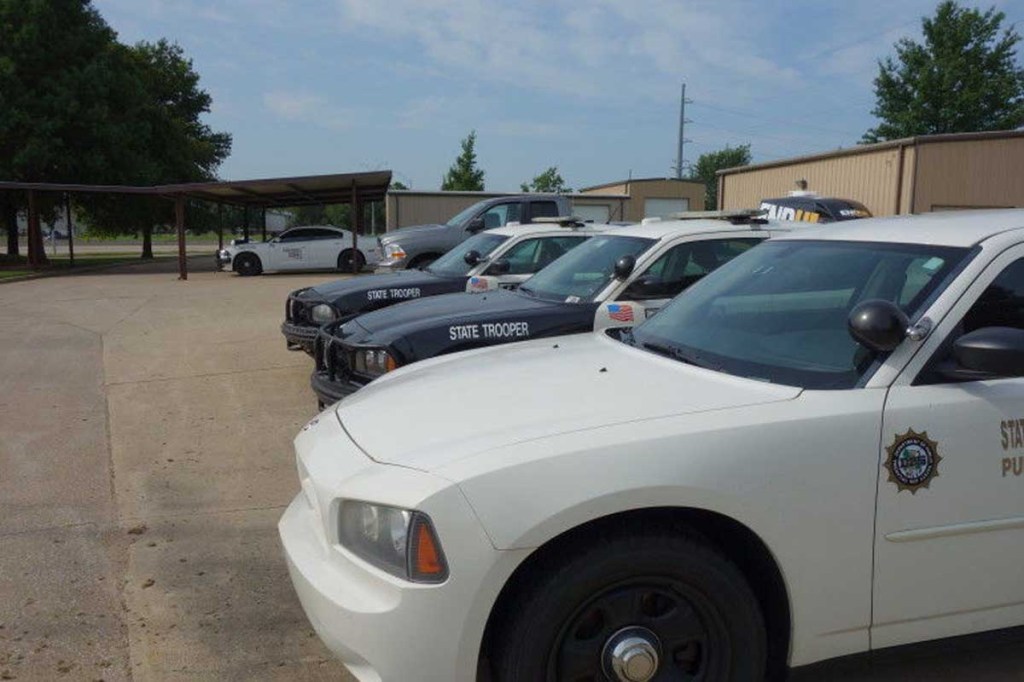Changes to ‘civil forfeiture’ program won’t stop police from seizing assets
Published 2:30 pm Wednesday, August 5, 2015

- The Oklahoma Highway Patrol led the state in seized funds.
More than 100 Oklahoma law enforcement agencies received $47.5 million over more than a decade through a controversial U.S. Department of Justice program that shared forfeited private assets with state and local agencies, records show.
Nearly three-fourths of the money and property went to the Oklahoma Highway Patrol, which, according to a federal audit, spent about $2 million of it over three years on questionable purposes.
Trending
Despite the audit and the slashing of the federal program in January because of abuses, a state official said the Highway Patrol plans to keep seizing private assets and pursuing forfeiture in court.
“We’ll conduct business like we always have,” said Stephen Krise, general counsel for the Oklahoma Department of Public Safety, of which the Highway Patrol is a part. Referring to the curtailing of the U.S. Justice Department’s Equitable Sharing Program, he added, “It’s a minimal impact.”
One likely change is that there will be fewer forfeiture filings in federal court and less involvement of the federal government, Krise said.
The Equitable Sharing Program allows local police departments can keep 80% of the stuff seized during drug raids and other investigations.
The practice of “civil forfeiture,” began in the 1980s during the country’s war on drugs. It has since allowed the police to seize cash or property that they suspect is tied to a crime even if the owner isn’t charged with one.
According to the Washington Post, since 2008, thousands of local and state police agencies have seized $3 billion worth of cash and property.
State and local law enforcement still have the right under state law to confiscate assets believed to be tied to drug trafficking and other crimes. They can take ownership through forfeiture proceedings filed in district courts regardless of whether the suspect is charged or convicted.
The amounts forfeited and the use of cash and property have spurred allegations that authorities are more focused on reaping revenue than bringing offenders to justice. Law enforcement officials deny this.
Saying the forfeiture program is flawed, state Sen. Kyle Loveless, R-Oklahoma City, has drafted legislation that would place limits on forfeitures, including prohibiting them without a conviction. District attorneys and sheriff’s offices argue this would hamper their efforts to combat drug trafficking.
Loveless’ bill would not affect the federal “Equitable Sharing” program for asset forfeiture, but criticism of that program echoes that of forfeitures allowed under state laws.
With equitable sharing, state and local law enforcement agencies were able to share forfeited assets with the Justice Department either through joint investigations with DOJ agencies or by having a DOJ agency “adopt” assets confiscated by state or local agencies. With adoption, a state or local agency usually kept about 80 percent of the cash or property.
From 2004 to 2014, the Oklahoma Highway Patrol received $33.6 million of cash and proceeds from sale of property seized under the equitable sharing program, according to Justice Department records obtained by Oklahoma Watch.
The next biggest recipients were the Tulsa Police Department, with nearly $2 million, and the Oklahoma City Police Department, with about $1.6 million.
Other recipients were small city police agencies, tribal law enforcement, district attorney’s offices and their drug task forces, metro police departments and sheriff’s offices. Other agencies were the Oklahoma Department of Agriculture and the Oklahoma National Guard.
In January, citing abuses, the Justice Department severely curtailed the sharing program, limiting it to cases involving seizures related to public safety, such as weapons.
Among problems that had surfaced were findings in the 2013 Justice Department audit of the Oklahoma Highway Patrol.
According to the audit, which covered fiscal 2010 through 2012, the Highway Patrol spent $1.7 million in equitable sharing assets on “unallowable, questioned” costs and $210,216 on “unsupported, questioned” costs.
During that period, the agency received nearly $8 million through the sharing program and spent about $7.8 million.
The Duncan (Okla.) Banner contributed to this story.


